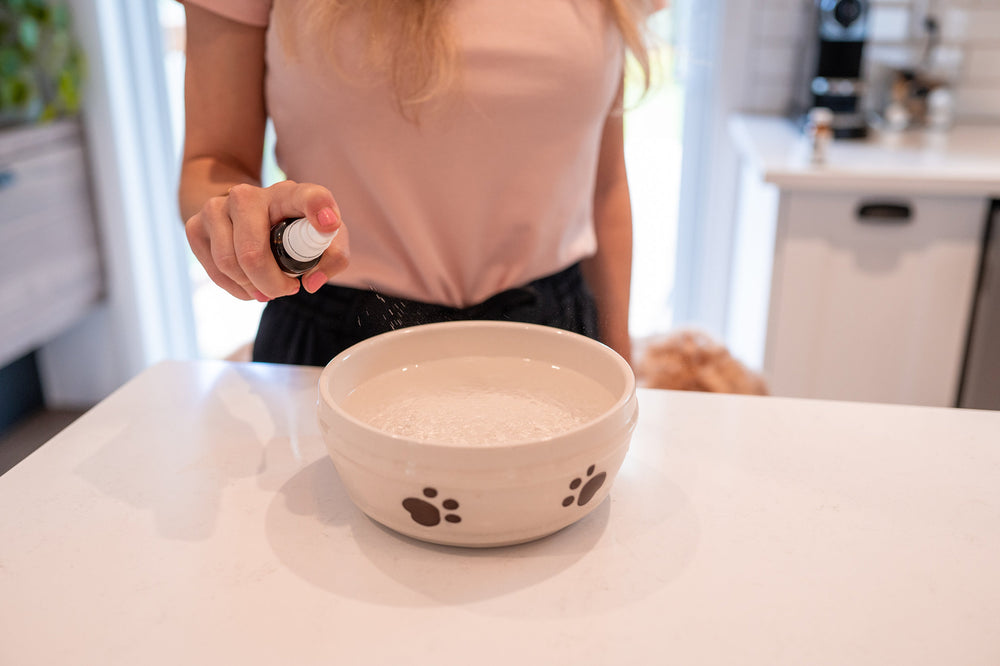Vet-Approved Guide: Best Mental Stimulation Strategies for Senior Boston Terriers
List of Contents
- Warning Signs of Cognitive Decline and Boredom in Senior Boston Terriers
- Top Mental Stimulation Tips to Keep Your Senior Boston Terrier Sharp
- The Impact of Nutrition on Brain Health in Senior Boston Terriers
- Brain Health and Cognitive Function: One Can’t Thrive Without the Other
- Senior Boston Terrier Care: Special Considerations for a Happy, Healthy Life
- A Final Word
- FAQs
For senior Boston Terriers, mental stimulation is essential to maintaining overall health and happiness. It can be even more effective than physical exercise in reducing restlessness and supporting cognitive well-being.
Known as the “American Gentleman,” the Boston Terrier is a bright, playful, and energetic breed that thrives on mental engagement. Without regular challenges, their sharp minds can become bored and under-stimulated.
Mental exercises are key to preserving cognitive function and slowing age-related decline in senior Boston Terriers. Keeping their minds active not only supports overall well-being but also helps maintain their unique personality as they age.
Mental stimulation offers numerous benefits for senior Boston Terriers, including sharper cognitive function, reduced stress, and fewer destructive behaviors. It also builds confidence, eases hyperactivity, and strengthens the bond between you and your dog.
Warning Signs of Cognitive Decline and Boredom in Senior Boston Terriers

Common signs of boredom in senior Boston Terriers include chewing furniture, digging, pacing, excessive barking, and persistent begging. Overexcitement when you return or constant restlessness may also signal a need for more mental stimulation.
Like humans, senior dogs can experience age-related cognitive decline, which affects their memory, learning, and behavior. Signs include confusion, personality changes, housebreaking issues, slower learning, increased clinginess, or forgetting familiar routines, like how to open a door.
Cognitive Dysfunction Syndrome (CDS) is a common age-related condition in senior dogs, similar to dementia in humans. The DISHAA acronym, Disorientation, altered Interactions, Sleep-wake cycle changes, House soiling, Activity changes, and Anxiety, helps identify key symptoms.
If your senior Boston Terrier shows signs of behavioral or cognitive changes, consult your veterinarian or a qualified pet homeopath to rule out underlying medical conditions. Symptoms like restlessness or house soiling may also stem from issues such as separation anxiety or pain.
Top Mental Stimulation Tips to Keep Your Senior Boston Terrier Sharp
Boost brain health by engaging your dog’s senses and natural instincts
- Scent work and “find it” games engage your senior Boston Terrier’s brain while satisfying their natural sniffing instincts. Activities like “which hand,” muffin tin puzzles, the shell game, and box searches provide fun, low-impact mental stimulation.
- Scent walks allow your senior Boston Terrier to explore the world at their own pace, reducing stress and boosting mood through sniffing, which lowers heart rate and releases dopamine. Switching up walking routes regularly introduces fresh scents and sights, keeping their mind engaged and walks exciting. Quick tip: If your dog has a medical condition, check with your veterinarian before beginning long walks.
- Create a cozy, safe spot by a window or glass door where your senior Boston Terrier can relax and observe the world outside. Watching people, animals, and nature provides gentle mental stimulation and helps prevent boredom.
Engage your senior Boston Terrier through interactive play and toys
- Puzzle toys and food dispensers challenge your senior Boston Terrier to think through how to access hidden treats, providing excellent mental stimulation. These can also help slow down fast eaters and reduce boredom.
- Frozen treats like "pupsicles" or plain frozen fruits and vegetables, such as carrots, offer a fun, enriching way to keep your senior Boston Terrier mentally engaged. Licking and gnawing on the treat provides sensory stimulation and extended entertainment.
- Rotating your senior Boston Terrier’s toys keeps playtime fresh and mentally stimulating. By cycling through different toys, even familiar favorites can feel new again, helping prevent boredom and encouraging ongoing engagement.
- Gentle games of tug-of-war can be a great way to engage your senior Boston Terrier both physically and mentally. This activity also supports impulse control and strengthens your bond through interactive play.
- Sensory toys stimulate your senior Boston Terrier’s senses of sight, smell, hearing, and touch, making them ideal for dogs experiencing changes in vision or mobility. These toys provide enriching, low-impact play that keeps aging minds and bodies engaged.
Keep senior dogs sharp through ongoing training and enrichment
- Teaching your senior Boston Terrier new tricks is an excellent way to boost mental stimulation, build confidence, and strengthen your bond. Short training sessions (5–15 minutes) can include fun tasks like picking up items, ringing a bell, or bringing objects. Even older dogs can learn with enthusiasm.
- Teaching your senior Boston Terrier the names of their toys is a fun, memory-boosting activity that enhances communication and cognitive skills. Over time, your dog can learn to retrieve specific toys by name, keeping their mind sharp and engaged.
- Indoor obstacle courses using everyday items like cushions, chairs, or tunnels offer a fun way to challenge your senior Boston Terrier both mentally and physically. These low-impact activities help improve coordination, confidence, and cognitive engagement.
Boost senior dog wellness through socialization and professional care
- Social interaction through playdates or doggie daycare can provide valuable mental stimulation for senior Boston Terriers who enjoy the company of other dogs. These activities help reduce loneliness, boost mood, and maintain social skills.
- A professional dog walker can provide your senior Boston Terrier with consistent walks and valuable sensory enrichment when your schedule is full. These outings support physical health, relieve stress, and keep their mind engaged.
- If your senior Boston Terrier shows unusual behaviors, such as confusion or restlessness, it’s important to consult your veterinarian or pet homeopath. These changes may be linked to boredom, cognitive decline, or underlying medical conditions requiring professional care.
The Impact of Nutrition on Brain Health in Senior Boston Terriers

Nutrition has a powerful impact on brain health, especially in aging dogs. Diets rich in antioxidants and medium-chain triglycerides (MCTs) can support cognitive function, enhance memory, and improve focus in senior pets.
When selecting food for your senior Boston Terrier, choose formulas specifically designed for older dogs. These diets are typically easier to digest and often include antioxidants and joint-supporting ingredients to promote overall health and mobility.
Always consult your veterinarian or pet nutritionist when choosing the best diet for your senior Boston Terrier. An expert can assess your dog’s individual health needs and recommend a tailored nutrition plan to support aging and overall well-being.
Brain Health and Cognitive Function: One Can’t Thrive Without the Other
Many dog parents overlook the connection between brain health and mental stimulation, especially in senior Boston Terriers. Supporting cognitive function with a reliable, premium natural supplement is essential to keeping your dog sharp and engaged.
Zumalka’s VITALOPET is an adaptogenic formula that supports your pet’s ability to manage stress by aligning with their unique body chemistry. It helps regulate adrenal function, aiding metabolism, immune response, blood pressure, and overall balance.
VITALOPET is an excellent support for pets experiencing adrenal fatigue or low energy. It also helps boost immune resistance, giving your pet the natural defense they need to stay healthy and resilient.
Senior Boston Terrier Care: Special Considerations for a Happy, Healthy Life

As your Boston Terrier ages, it’s important to adjust physical and mental activities to match their changing energy levels and health needs. Gentle, age-appropriate enrichment helps prevent overexertion while keeping them active and engaged.
Moreover, as your Boston Terrier reaches their golden years, showing patience and compassion is more important than ever. Embracing their changing abilities helps strengthen your bond and supports their emotional and physical well-being.
Senior Boston Terriers are more susceptible to weight gain due to decreased activity. Managing their weight is essential to reduce the risk of obesity-related issues like arthritis and to maintain overall health and mobility.
Regular veterinary check-ups and pet homeopathy consultations are essential for monitoring your senior Boston Terrier’s health and catching potential issues early. Daily dental care and routine cleanings also play a vital role in preventing painful and costly oral health problems.
Creating a comfortable environment is key to supporting your senior Boston Terrier’s changing needs. Provide an orthopedic bed for joint relief and use rugs or mats to improve traction on slippery floors and prevent injury.
Because of their brachycephalic (short-nosed) structure, Boston Terriers are prone to breathing difficulties, especially in warm weather. To keep them safe, schedule walks and exercise during cooler times of the day.
A Final Word
Combining age-appropriate exercise, mental enrichment, and a nutritious diet helps your senior Boston Terrier stay healthy, sharp, and content. This holistic approach promotes longevity and enhances their daily quality of life.
Spending intentional time on your senior Boston Terrier’s physical and mental well-being deepens the bond you share. These daily moments of care, play, and connection reinforce trust and lifelong companionship.
Your senior Boston Terrier deserves a life filled with comfort, joy, and mental engagement. With thoughtful care and enrichment, you can help them thrive through their golden years, healthy, happy, and deeply connected to you.
FAQs
How to mentally stimulate a Boston Terrier?
To mentally stimulate a Boston Terrier, use interactive toys, scent games, short training sessions, and puzzle feeders. Rotate activities and toys regularly to keep their minds sharp and engaged, reduce boredom, and strengthen your bond through positive enrichment.
How to mentally stimulate your older dog?
To mentally stimulate your older dog, offer puzzle toys, gentle training sessions, scent games, and varied walks. These activities support cognitive health, reduce boredom, and keep aging minds engaged and emotionally fulfilled.
How to mentally stimulate a terrier?
To mentally stimulate a terrier, incorporate interactive play, scent work, puzzle toys, and trick training into their routine. These intelligent, energetic dogs thrive on challenges that engage their mind and satisfy natural instincts.
How to calm a hyper Boston Terrier?
To calm a hyper Boston Terrier, provide daily physical exercise, mental stimulation, and a consistent routine. Use calming techniques like puzzle toys, scent games, and short training sessions to reduce excess energy and anxiety.
How to massage a Boston Terrier?
To massage a Boston Terrier, use gentle, slow strokes along the back, shoulders, and legs, avoiding pressure on joints. Focus on relaxation, watch for signs of discomfort, and create a calm environment to ease tension.
What is the best thing for a dog to be mentally stimulated?
The best way to keep a dog mentally stimulated is through interactive toys, scent games, puzzle feeders, and positive training. These activities challenge their mind, prevent boredom, and support emotional and cognitive well-being.
How to calm down a senior dog?
To calm down a senior dog, maintain a consistent routine, provide a quiet environment, and offer gentle physical and mental stimulation. Soothing massages, calming supplements, and low-stress enrichment activities can help reduce anxiety and promote relaxation.
How much stimulation does a senior dog need?
Senior dogs need daily mental and physical stimulation tailored to their age and health. Short walks, puzzle toys, gentle training, and sensory enrichment help maintain cognitive function, prevent boredom, and support overall well-being.
How to mentally stimulate a dog without treats?
To mentally stimulate a dog without treats, use praise, toys, and engaging activities like scent games, walks, obedience training, or puzzle toys. Interactive play and new experiences keep your dog’s mind active and reward them through enrichment.









Leave a comment